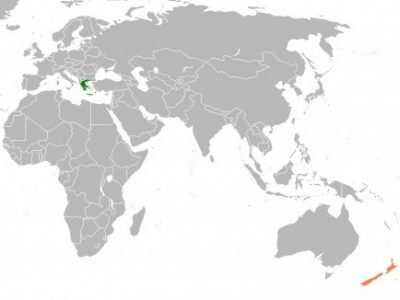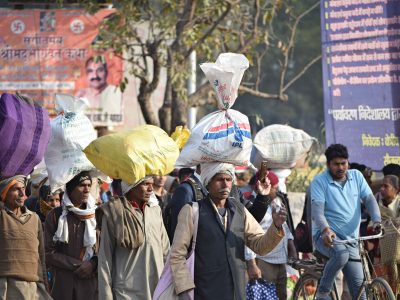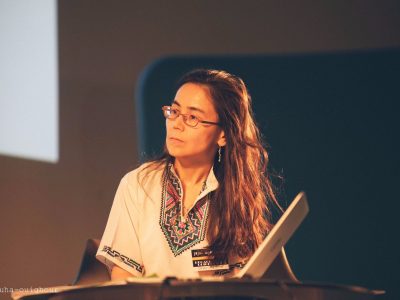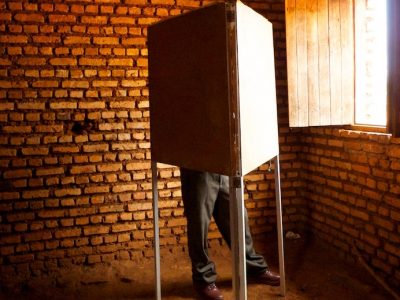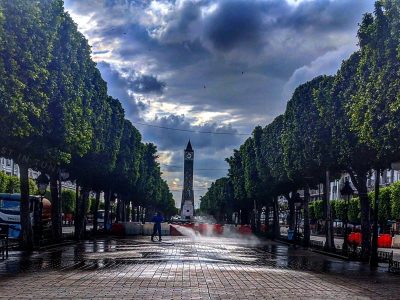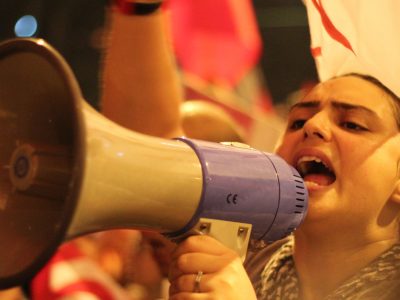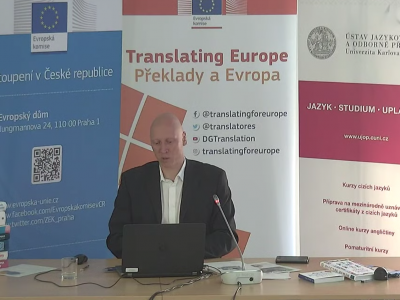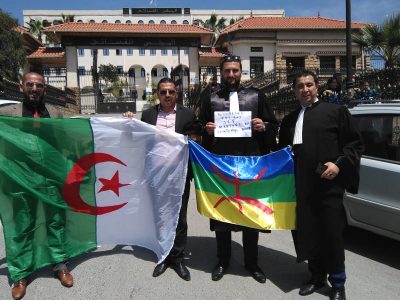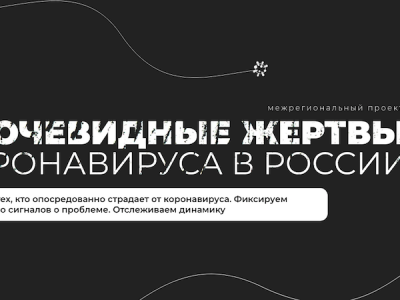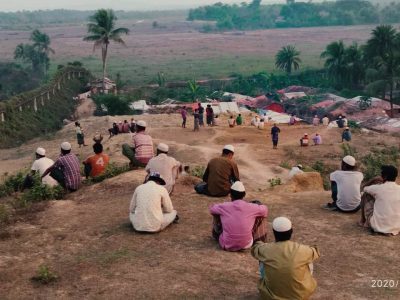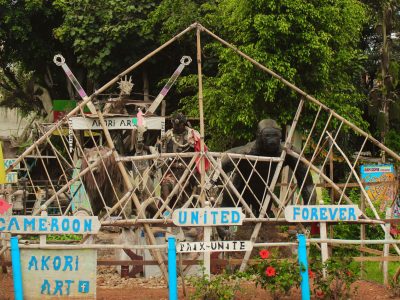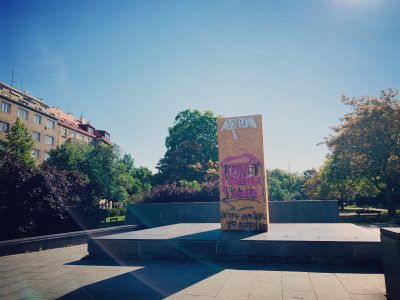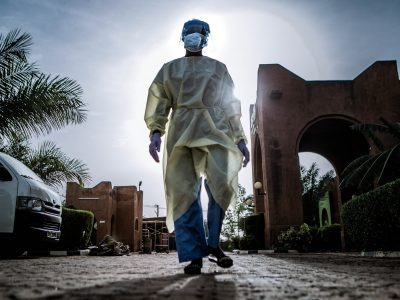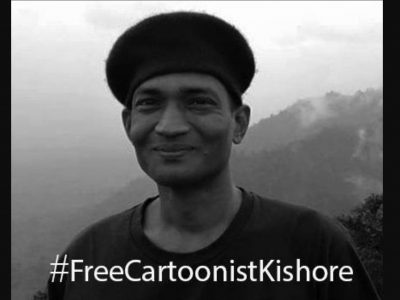Stories about Media & Journalism from May, 2020
Talking down under: Greek PM ‘discovers’ South Zealand
"Primary school kids listen to him and drop dead laughing. Long live our Leader, our EXCELLENT KYRIAKOS! HE'S WHAT WE DESERVE!"
Foreign Correspondent's Club of Japan accused of censorship after taking down Tokyo Olympics parody
The April issue of the club's magazine featured the Tokyo Olympics' emblem depicted in the shape of a coronavirus, which reportedly prompted copyright complaints from the Olympic Organising Committee.
How identity-driven conflicts fuel Ethiopia's incendiary social media rhetoric
Unity Park aimed to tell the story of all Ethiopians and celebrate the country’s diversity. But social media revealed politicized, nationalistic reactions along ethnic lines: Amhara and Oromo.
Will the ‘Self-reliant India’ scheme bring relief to migrants during the COVID-19 pandemic?
Indian Prime Minister Narendra Modi announced another economic reform package of 265 Billion USD during the COVID-19 pandemic which drew criticism from netizens.
Uyghur human rights advocate Dilnur Reyhan laments lack of Muslim solidarity
Hatred against the West has blinded ordinary Muslim citizens to the point of refusing to believe news brought by the Western media, even when it concerns concentration camps for Muslims
Burundi voted — but will the political situation change?
Burundians voted on May 20 for a new president, with official results expected next week. The new president will face pressing questions on international relations, media repression, inclusive economic policies and impunity.
From counterterrorism to counter-COVID-19, governments use crises to impose continuous states of emergency in the Middle East
Fighting terrorism used to be the umbrella under which states of emergency were justified in the Middle East. Now, COVID-19 serves as a new justification for sweeping powers.
In Tunisia, women stand on the frontlines of targeted hate speech online
In Tunisia, an uprising toppled leadership and lead to revolution in 2011. Since then, digital space has witnessed heated debates about politics and society — including attacks against women activists and journalists.
Following COVID-19 closure, Ghibli Museum posts mini-tours online
One of Japan's most beloved tourist attractions is offering short virtual tours on YouTube.
COVID-19-themed Global Voices story stars in Czech translation competition
Moderator Jan Faber spoke with GV about record-breaking participation in this year's edition, the future of translation and common errors that foreigners make when writing in Czech.
In Algeria, online repression targets Amazigh protesters active in Hirak movement
In Algeria, the Amazigh people are often associated with France, Algeria's former colonial power. Racial slurs online accuse this group of being separatists who threaten "national unity."
Journalists in Russia's regions catalogue the ‘unseen victims’ of COVID-19
The wider social and economic consequences of COVID-19 have destroyed livelihoods and sometimes ended lives. Coronavictims.ru exists to catalogue what its founders call the "unseen" victims of the pandemic.
Nepali Muslims eye India's growing Islamophobia with fear
The coronavirus pandemic has exacerbated the status of already vulnerable minority Muslims in Nepal.
Hong Kong reveals the city's agenda to construct an Orwellian ‘truth’
The release of a report on the police's use of force in protests seems to be "part of a wider set of coordinated announcements designed to deliver the new ‘truth’".
Photo contest asks Rohingya community to document their lives during the COVID-19 pandemic
A photography competition for Rohingya people is being held from April 23 – August 23, 2020, featuring two broad categories – “Rohingya life” and “Response to Coronavirus” and entries can be submitted online.
Women journalists in Uganda carry ‘double burden’ with online attacks and harassment
Women journalists in Uganda carry the double burden of gender-based abuse online and potential threats related to political reporting. These threats have led women journalists to withdraw from public discourse.
Cameroon’s 3-year separatist crisis: Online threats, attacks on identity and freedom of expression
Journalists in Cameroon have to be very careful about reporting on atrocities related to the separatist conflict. Appearing to side with separatists or the government can lead to online attacks.
In Burundi, four journalists jailed for months await appeal
The four jailed journalists with Iwacu were accused of threatening state security on the basis of a WhatsApp message sent as a dry joke while reporting on a rebel attack.
Monumental differences: Prague, Moscow trade barbs over World War Two
"Did in fact all Czechs then realize what kind of Russians saved their city?"
Amid COVID-19 pandemic in Niger, government violates whistleblowers’ freedom of speech
Today in Niger, freedom of demonstration, assembly and speech are endangered, flouted by the unelected administrative authorities of various municipalities in the country.
In Bangladesh, criticism of government response to the COVID-19 pandemic is risky
"Would it be wrong if someone says that the authorities in Bangladesh, equipped with Digital Security Act, launched a crackdown on those critical to the government?"

